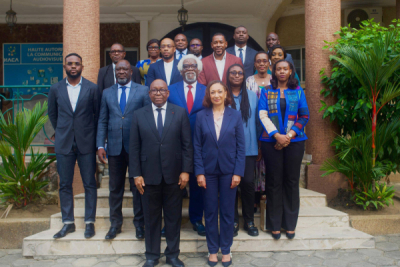In recent years, Ghana has embarked on a series of digitization efforts aimed at tackling corruption, safeguarding tax revenues, and enhancing living standards. The initial outcomes of these initiatives are now becoming increasingly evident.
Ghana's Vice President, Mahamudu Bawumia (photo), is advocating for continued government investment in digital technology. At the University of Ghana's 75th Annual New Year School and Conference, themed "Nurturing Resilience: Adopting Technology and Embracing Humanism for Sustainable Development," Bawumia highlighted the significant impact of digitization on the country's development following seven years of government investment in the sector.
Since 2017, Ghana's digitization efforts have resulted in the successful implementation of a national biometric identification system, a property address system, mobile money interoperability across all telephone networks and financial institutions, and the digitization of government services, passport offices, National Health Insurance Scheme (NHIS) services, port operations, and drone delivery of essential medicines, among others.
"The goal, upon assumption of office, was to quickly transform our economy by leveraging technological innovation as a means to leapfrog the development process, overcome legacy problems, and improve both economic and public sector governance. This is why digitalization has been a major area of focus for our government; to build a new system through digital transformation," he stated.
In Ghana, the decision to digitize services aims to minimize human contact as much as possible, combat corruption, and increase public revenue. For instance, the passport office processed a total of 16,232 applications in 2017, generating a turnover of 1.1 million cedis ($91,865). With digitization, the same office processed 498,963 online applications in 2021, generating a turnover of 56.7 million cedis.
The digitization of the driving license department in 2019 led to an increase of over 100% in service demand in 2020. The positive impact of digitization is also evident in the implementation of the motor insurance database, which shows growth in the insurance sector from 19% in 2019 to 37% in 2020 and 26% in 2021.
Samira Njoya



















